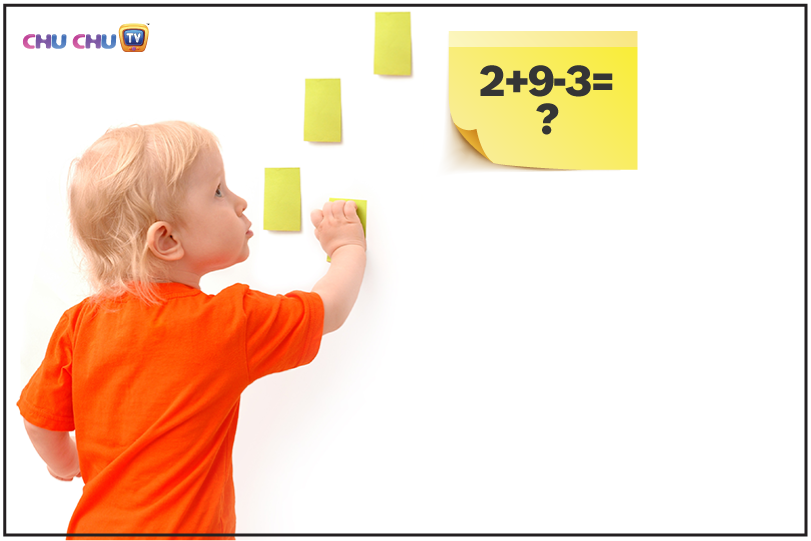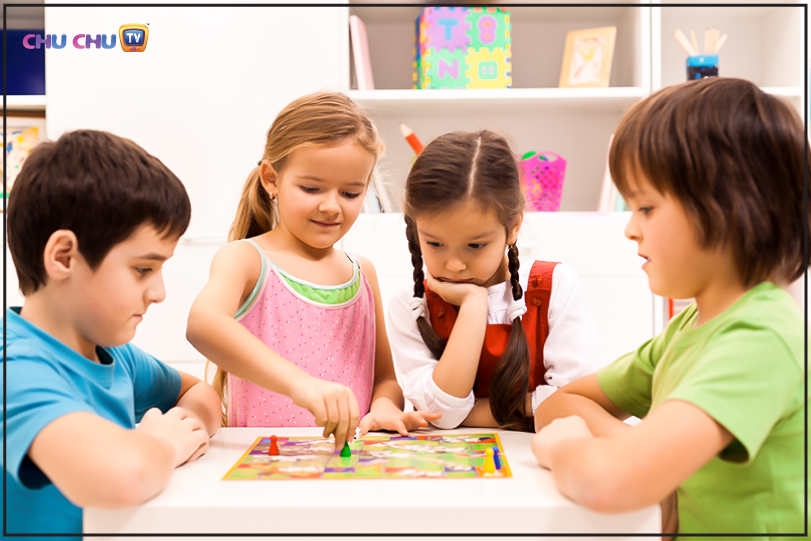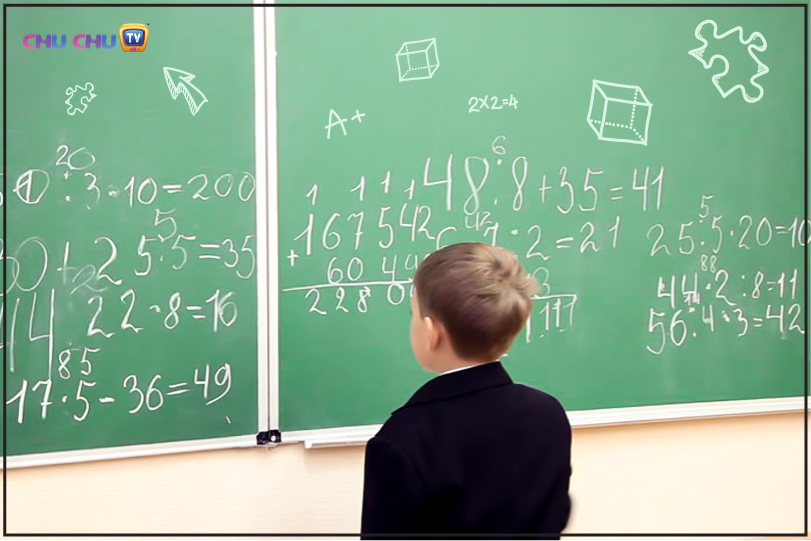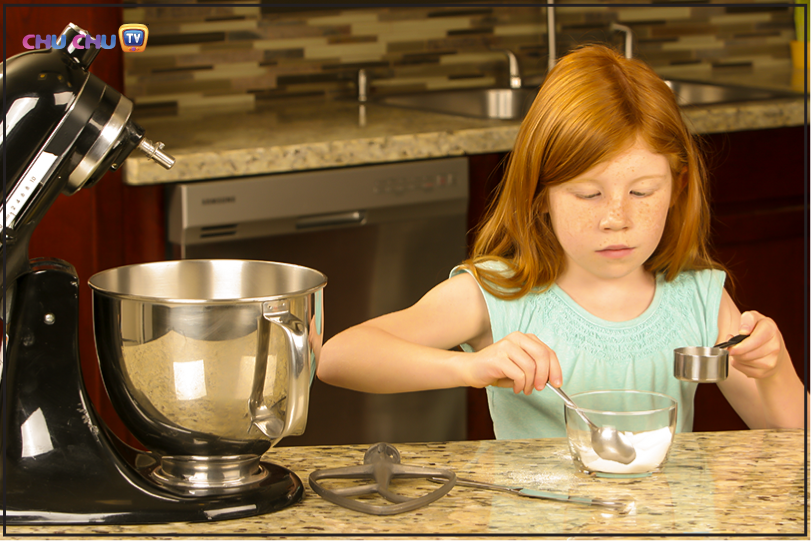Maths continues to be a subject of great love for some and a huge bugbear for many others. There seems to be no middle ground as far as the subject is concerned. However, as parents, regardless of whether you belong to the first or second category, it seems imperative to cast that aside and attempt to unravel the mystery of maths for the benefit of your children. But do not fret as we have put together ways to make the subject fun for kids. Read on to find out how!
DO AWAY WITH THE FEAR FOR THE SUBJECT
When you sit down to think about it, anything that we dislike vehemently is actually something we are deeply afraid of. A psychologist once categorized emotion into two types – Joy and Fear. All other emotions like anger, sadness, and exhilaration have their roots in these two primary emotions.
So as a parent, try and take away the fear of the subject from your child’s mind. You can do this by talking about it as anything else you may talk about. Like playing with a ball or reading a book. When it is time to tackle the problems head on, try to make it as informal and casual as possible. You may just find out that it is actually not as fearful a subject as many make it out to be.
INCORPORATE LEARNING INTO EVERYDAY ACTIVITIES

This is one of the main tricks to making learning fun for children. You can apply this tip to anything related to learning and not necessarily maths. When the child is in the stage of learning to read, sitting primly in front of a table with a book isn’t the only way to learn to read.
Walking on the road and reading the names of shops is a good way to motivate children to read. Reading the numbers on buses is another great pastime. Children who cultivate the habit of reading any paper that they come across- like a pamphlet or a brochure, tend to learn effortlessly as most part of learning involves a fair amount of reading in it.
HAVE FRIENDLY GAMES INVOLVING MATHS
If you suspect that your kid seems to struggle with maths, try to make games around simple concepts you may want them to learn in maths. The games you play will definitely depend on the age of your child.
However, creating the culture of playing games around concepts is a great and fun way to get children interested in maths. When they find themselves losing on account of something they do not know, wanting to win the next time might be a great motivation to learn quickly.
GET THEM TO KEEP SCORE FOR SIMPLE GAMES YOU PLAY
Simple ways in which maths is available in day to day life is where you should try to focus the attention of your child in order to make the subject fun for them. Whenever you play games, get the youngest child around to keep score. Over time, they learn many nuances and shortcuts to do the job more efficiently which will actually be beneficial for their maths knowledge in the long run.
PROVIDE PLENTY OF INCENTIVES TO WIN SMALL MATHS RIDDLES
A good way for children to want to learn more is when you provide an incentive. For example, if they want a favor, you can leave a riddle for them to solve in order to receive the favor. Though this calls for consistent effort on your part, it will reap rich rewards over time when they become quick thinkers.
ALLOW THEM TO RATION AND SHARE THINGS AMONGST OTHERS
The best way to teach a child division is to give them some chocolates and ask them to divide it equally in the family. The passion with which they will go about the exercise will ensure that they do it correctly. This is just an example.
ASSIGN SIMPLE TASKS RELATED TO MATHS
You can ask your kids to keep track of the number of people for a party and the supplies that need to be arranged for the same. This way you help them learn in real time which helps accomplish two things.
The kids understand how lessons learned in school help them in their real life. The kids are also able to appreciate how learning makes them better prepared, to handle many day-to-day situations. Apart from all this, you would love an enthusiastic little helper while planning things, wouldn’t you?
GIVE YOUR CHILDREN POCKET MONEY
There are many studies that encourage parents to give children a small sum of money every month to manage their expenses. This not only helps them learn practical applications to maths but also provides a primer on how to manage, budget and save up finances for something that they look forward to spending on.
This will also help them learn to make a habit of the art of delayed gratification. In the initial stages, it will be addition and subtraction that will come easy; following which they will expand into more complex calculations.
CONSCIOUSLY INTRODUCE THEM TO THE WORLD OF PROBLEM SOLVING
Many families that work out problems over the dinner table go on to cultivate a great skill for problem-solving, especially for the children that grow up in such an atmosphere. However, this does not always happen by itself. If you can create an ambiance by deliberate design, it will hold your kids in good stead in the years to come. They will learn under minimal pressure and hence will never develop a fear of performance tied to their memory of the subject. Also, they will have plenty of fun taking help from others which will be a bonding experience for the whole family. Solving Sudoku or other logic puzzles together as a family can be loads of fun too.
ASK THEM TO PUT OUT INGREDIENTS AFTER SEEING A RECIPE
Most recipes have to be tweaked with respect to measurements. Ask your children to participate in cooking by measuring out ingredients; for example, baking a cake. They will understand how to convert ratios into real quantities based on the tweaks needed. Think of other activities that will involve their mind into simple operations around mathematics and engage them in these activities.
Do you realize there is a common thread that connects all the suggestions given above? It’s the fact that learning should be seamless and not a point of trepidation. The main point that is driven home is that learning does not have to be confined within the walls of a classroom. Once it is liberated out of the cage structure of classrooms, it is like a bird that perches on any shoulder that is willing to be enlightened by it.
Once this is clear, it will not be just maths that will become familiar. The whole world becomes your child’s oyster full of curious questions to which answers need to be found and conquests waiting to be undertaken. Happy Parenting!
Does your child love Maths? What are the ways in which you ensure that your child grows to love Maths? Tell us in the comments below!



















Leave a Comment